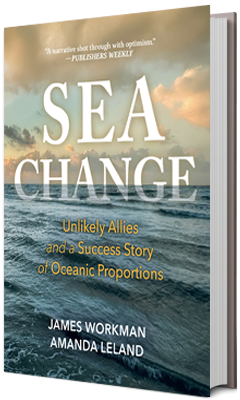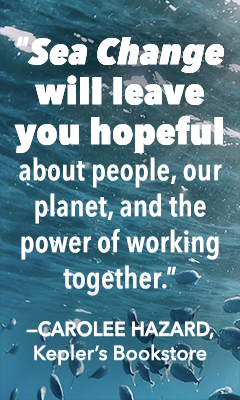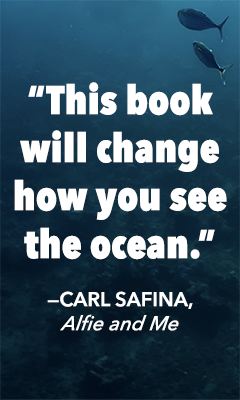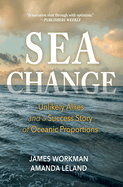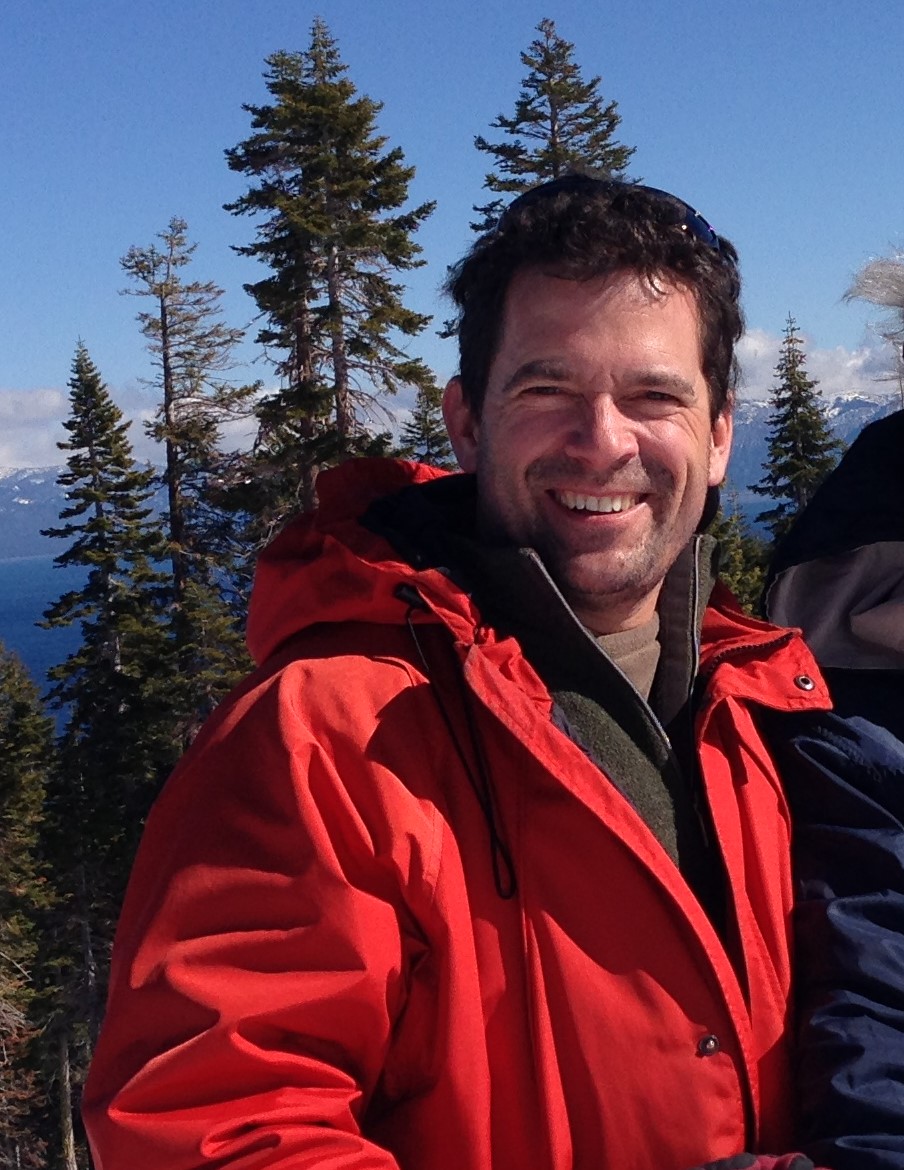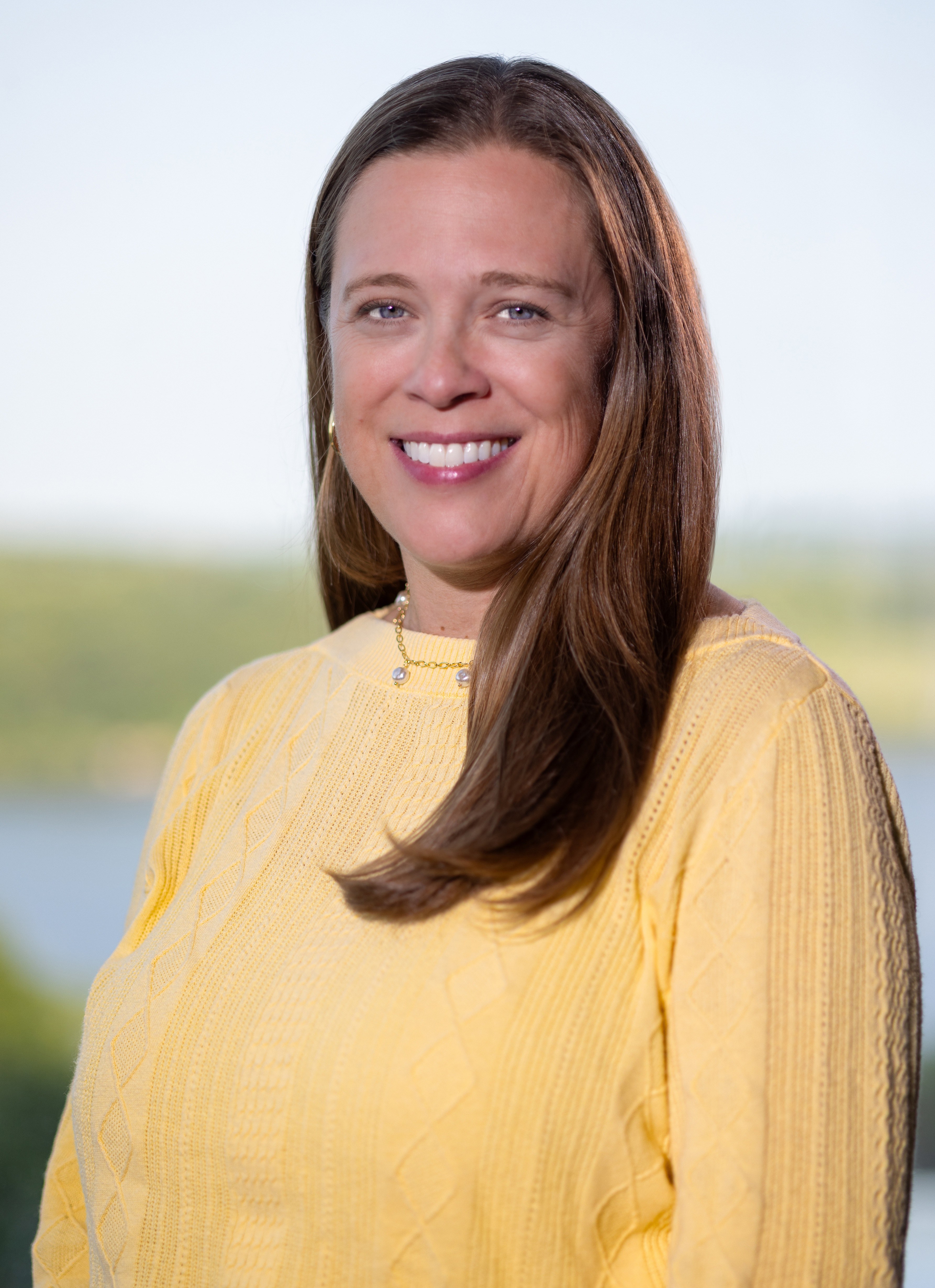Sea Change: Unlikely Allies and a Success Story of Oceanic Proportions
by James Workman, Amanda Leland
Journalist and entrepreneur James Workman and Amanda Leland, executive director of Environmental Defense Fund, present a rare story of ecological recovery with Sea Change: Unlikely Allies and a Success Story of Oceanic Proportions. In the concept known as "catch shares," fishers are allotted proportional shares of a limited quantity of fish to be harvested; the demonstrated outcome improves the health of fisheries as well as the lives and livelihoods of commercial fisherfolk. Through the lens of engaging characters and locally based stories, Workman and Leland suggest this strategy may be applicable to other challenges around the world: "This revolutionary social contract with the sea has not only slowed, stopped, and in some cases reversed the devastating effects of overfishing along our coasts, but the centrality of pragmatism and collaboration could help solve some of the thorniest and most urgent natural resource challenges we confront worldwide--including the climate crisis."
In an easy-to-read, storytelling style, Workman and Leland describe how catch shares have been proposed and enacted, often amid great conflict. The authors also detail how this strategy has led to safer and more profitable fishing while helping recover fish populations. Even former opponents have become involved in supporting and expanding such programs. Sea Change wisely focuses on delightful, colorful characters, opening with Keith "Buddy" Guindon, who grew up fishing the Great Lakes and then made a career in Galveston, Tex. Big, brash, a self-described pirate with a "reputation as a grim reaper of the aquatic world," he's an ideal protagonist. "A barrel of a man with amused eyes, a gruff voice and a Santa Claus beard, Buddy is a Galveston legend." Since arriving there in the late 1970s, "he has consistently outmuscled and outfoxed every other fisherman in the western Gulf." An early, outspoken detractor of catch shares, Buddy rapidly morphed into one of its champions, proselytizing across the United States and the world.
Fisheries in the United States and around the world have been, in recent years, suffering various stages of overuse. As the problem grows exponentially--fewer fish, longer hours, greater rush in more unsafe conditions, lower prices--so does the solution. When fishermen are assured of their fair share of the total catch, they can be more methodical, efficient, and selective about their work. They can avoid dangerous weather conditions, work shorter shifts with less rush, save on fuel, reduce bycatch and waste, bring in higher-quality product and command higher prices, even tailor their harvest to market. In Alaska's pollock fishery, for example, "Each shareholder could set a unique and more unhurried pace to catch his quota. Vessels dropped trawl nets into the sea less often and more selectively, with fewer 'tows' per day. Waste from having to throw back both regulatory discards (fish that are marketable but illegal to keep) and accidental bycatch (species with no market value) plummeted. Fishermen began to insist on and provide credible data, sharing information on how much they caught where and at what time just as soon as it was available."
Moreover, as the fish population, health, and habitat recover, fishers and communities become safer and more secure. Fishermen like Buddy, generally fiercely independent individualists, learn to work together not only in allocating shares but in enforcing rules and developing technologies to assist in transparency and improved fishing practices. Fishers learn to work with scientists and environmentalists--not traditional partners--and everyone with a stake in the fishery's health learns to play a more responsible role.
Often following Buddy's own journey, Sea Change is structured as a movement from the microcosm to the macro, in sections titled "Personal," "Local," "Regional," "National," and finally "Global," where readers see Buddy travel to Tokyo's Tsukiji fish market, and share his support for catch shares with Japan's commercial harvesters. The narrative progresses from highly specific successes to globally applicable potentials. Coercive, top-down policies set by government or environmental agencies had long rankled the likes of Buddy, who reflexively pushed back; but catch shares depend on cooperative buy-in from the fishers themselves and incentivize them to protect overfished populations of their own volition.
Catch shares is in some ways an innovation, but also based on traditional relationships across many small coastal societies throughout history: the concept that everyone takes a share according to ability and need, and that everyone contributes to responsible stewardship. It is a version of the concept of the commons, in which a public resource is both used and maintained by the public. The "tragedy of the commons," in turn, is the fear that if one party does not use up their share--or more than their share--another will. This mindset encourages irresponsible use: if someone else is going to overharvest, it might as well be me, some might think. But with appropriate monitoring--another piece of the system whose development wound up actively involving fishermen--Buddy and the others were able to relax, build trust, and fish smarter.
From local fisheries to global trends, Sea Change samples best and worst practices to highlight the great promise of catch shares to help both fish populations and the people who rely upon them for livelihoods and nutrition. This accessible study emphasizes galvanizing opportunities to make positive change in myriad other areas of policy and sorely needed optimism in the world of environmental thinking and planning. --Julia Kastner



